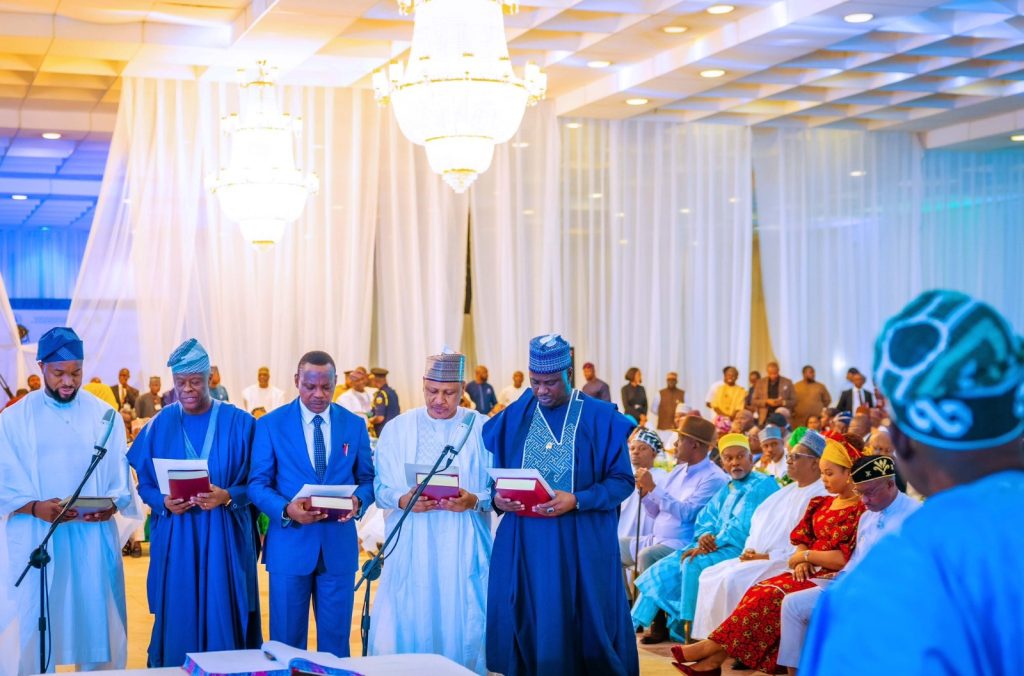As President Bola Tinubu begins to assemble his cabinet through a series of appointments, the nation’s eyes are keenly fixed on the choices he makes.
Recent developments in Tinubu’s appointments have raised concerns about nepotism and regional bias.
Nepotism and favouritism in the Nigerian government have long been subjects of concern. According to a survey conducted in 2019 by Statista, about half of the applicants who secured a position in the Nigerian public sector used nepotism, bribery, or both.
In sharp contrast to the leadership approaches of his forerunners, Umar Musa Yar’adua and Goodluck Jonathan, who placed a premium on inclusivity and sought representation from diverse regions across the nation, Tinubu’s appointments have exhibited a pronounced bias towards a particular region and a limited circle of individuals who held crucial roles in his presidential campaign.
Equitably distributing resources, opportunities, and representation to prevent the marginalization of any group or region is a fundamental principle of democracy.
Past Presidents
Yar’adua, during his tenure, embraced this concept by appointing individuals from diverse backgrounds to his cabinet. He understood the importance of fostering national unity and ensuring that every part of the country had a voice at the decision-making table. Jonathan, too, followed a similar path. This contributed to the sense of belonging among different ethnic and regional groups.
Nonetheless, the recent administration of former President Muhammadu Buhari was marred by allegations of nepotism and corruption. A path that seems to be echoed by Tinubu’s current approach. His appointments have notably leaned towards individuals of Yoruba descent. While appointing individuals from one’s region is not inherently problematic, issues arise when it results in an uneven representation that marginalizes other regions and ethnic groups.
Tinubu’s reliance on tribe and appointees who actively supported his presidential bid has raised questions about the criteria for selection. Appointments should be based on competence, expertise, and a commitment to the nation’s well-being rather than political patronage. Or how can new ideas, worthwhile policies, and development take place when those appointed are there to protect tribal interests rather than those of the majority?
Nepotism, as evident in these appointments, carries significant implications. It undermines public trust in the government, as appointments may appear to be based on loyalty rather than merit. Such perceptions of injustice can foster resentment and division among various regions and ethnicities, potentially jeopardizing Nigeria’s fragile unity.
Does the consititution allow?
While it is essential to recognize the president’s prerogative to choose his cabinet, it is equally important to highlight the importance of diversity, inclusivity, and meritocracy in governance. A government that reflects the nation’s rich diversity is more likely to make well-informed decisions that benefit all citizens.
Aside from the ethical concern that nepotism may potentially introduce corruption into government, the constitution explicitly forbids it. The framers of the 1999 constitution incorporated the Federal Character principle (as outlined in Section 14[3]) based on the resolutions established during the 1994-1996 Constitutional Conference led by the late General Sani Abacha. This principle aimed to mitigate regional or sectional dominance within the Federal Government.
Tinubu’s template of appointment risks alienating a significant portion of the Nigerian population. It is crucial that the president reconsiders his approach and takes deliberate steps to ensure that his cabinet represents the entire nation.
A shift from the cycle of nepotism and regional bias observed in recent appointments is essential for fostering national cohesion, trust, and a brighter future for all Nigerians.
Tinubu’s presidency has the potential to leave a lasting legacy of inclusivity and meritocracy, and it is up to him to embrace this opportunity for the greater good of the nation.
